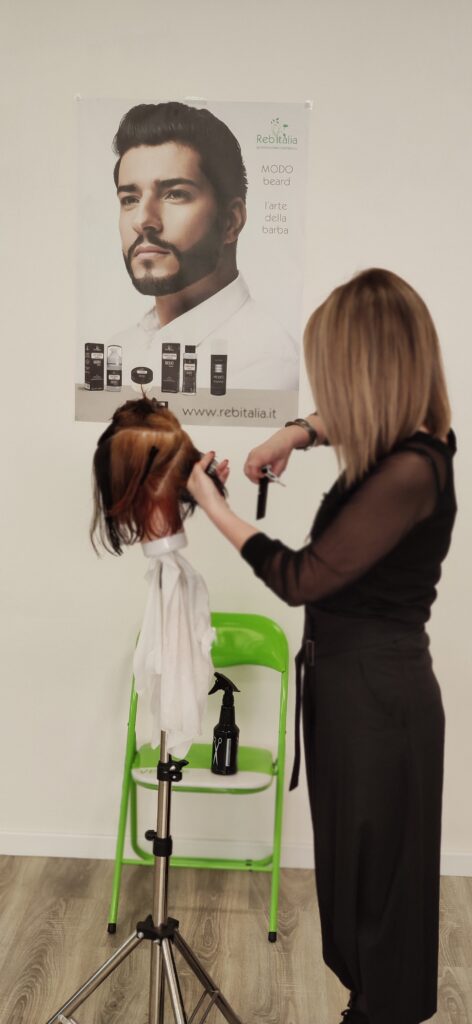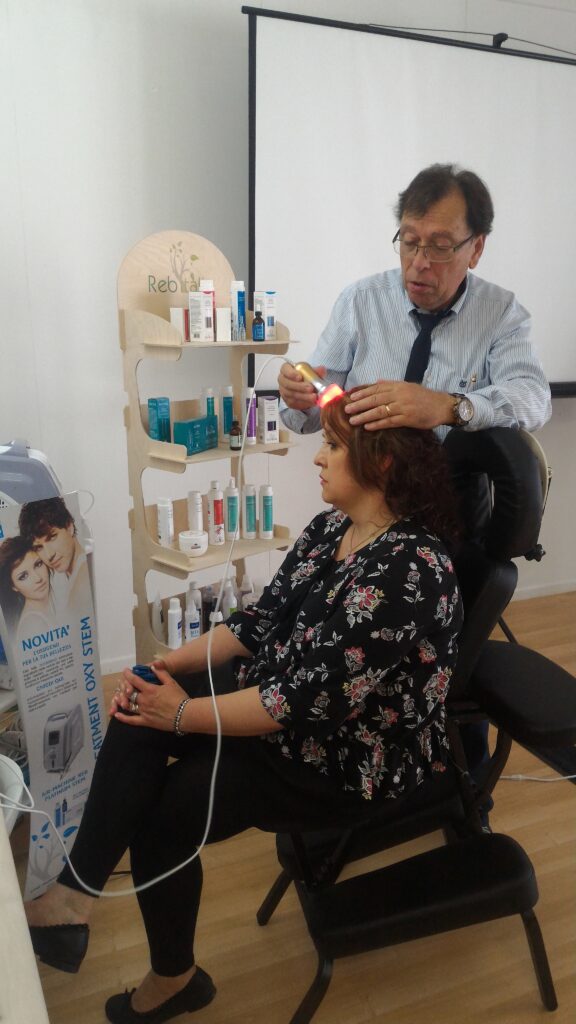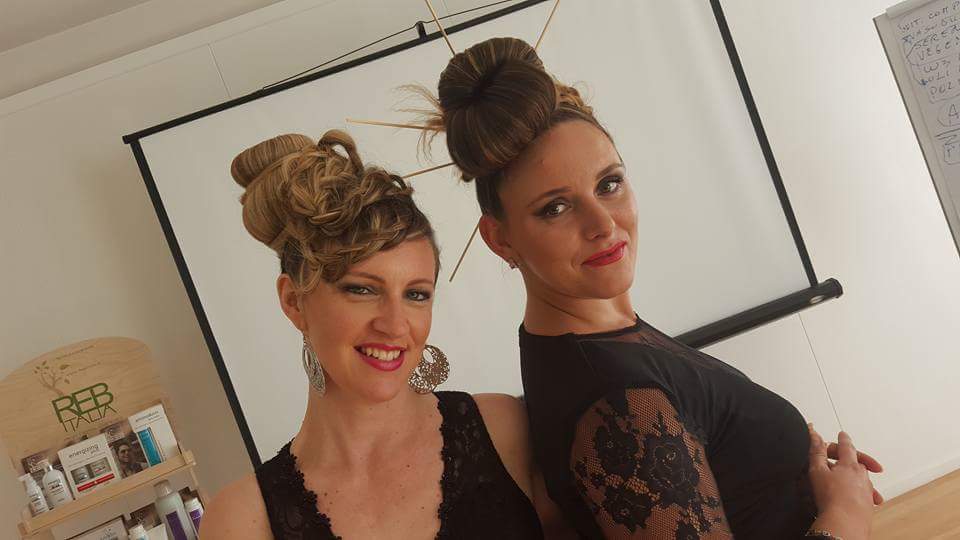Corsi di Formazione per professionisti del Capello
VUOI DARE PIÙ VALORE E QUALITA' AL TUO NEGOZIO?

Se vuoi far crescere davvero il tuo salone, la differenza la fa una cosa sola: formazione continua, concreta e subito applicabile.
È per questo che Rebitalia organizza corsi di formazione pensati per parrucchieri, barbieri e team di salone che vogliono alzare il livello del servizio, migliorare la consulenza al cliente e distinguersi in un mercato sempre più competitivo.
I nostri percorsi uniscono teoria e pratica, con giornate dedicate alla tricologia e alla cosmetologia (per capire davvero cute, capelli e ingredienti), e momenti tecnici focalizzati su taglio e stile: dal taglio anglosassone ai trend, fino a tecniche evolute come il 3D, senza dimenticare la cura e la gestione della barba e dei servizi maschili.
L’obiettivo è semplice: darti metodo, sicurezza e strumenti per proporre trattamenti più mirati, aumentare la fidelizzazione e trasformare ogni appuntamento in un’esperienza professionale completa.
Se vuoi portare nel tuo negozio più qualità, più competenza e più valore percepito, Rebitalia è al tuo fianco: scegli il prossimo corso e fai un passo avanti, insieme a noi.
Saranno sempre le nostre creazioni a dire chi siamo...
imparare per innovare.
Giornate di formazione tricologica
Un percorso teorico e applicato pensato per professionisti che vogliono lavorare con più consapevolezza, sicurezza e risultati. Durante le giornate di formazione imparerai a conoscere in modo chiaro e pratico le funzioni della pelle, la struttura e le caratteristiche del capello, e a leggere con attenzione gli ingredienti contenuti nei prodotti per scegliere sempre la soluzione più adatta a ogni esigenza.
Entreremo nel vivo delle principali anomalie del cuoio capelluto e dei capelli, riconoscendo i segnali e comprendendone le cause: dal ricambio anomalo (alopecia) alla forfora (pitiriasi), fino alla seborrea (cute grassa). L’obiettivo è darti un metodo professionale che ti permetta di fare diagnosi estetiche più precise, migliorare la consulenza e valorizzare ogni trattamento in salone.
E perché la formazione deve trasformarsi in competenza reale, alla teoria affianchiamo applicazioni dimostrative pratiche, con lavorazioni su modelle e/o testine, per vedere, provare e portare subito in salone ciò che hai imparato.


Giornate di formazione su acconciature
Un percorso pratico e concreto, pensato per chi vuole portare in salone tecnica, metodo e stile in modo professionale. Durante queste giornate lavoreremo con un approccio chiaro e strutturato, basato sul metodo anglosassone, per migliorare precisione, velocità e controllo in ogni fase del lavoro.
Affronteremo il taglio base maschile e femminile, costruendo fondamenta solide che ti permettano di gestire al meglio forme, volumi e proporzioni. A questo affiancheremo il taglio moda trend, con focus sulle ultime tendenze, per aggiornare la tua manualità e rendere i tuoi look più attuali, riconoscibili e richiesti.
Spazio anche al mondo maschile: vedremo come gestire e curare la barba, sia per un viso pulito e ordinato, sia per una barba lunga, con indicazioni pratiche su linee, rifiniture e mantenimento, così da offrire un servizio completo e di alto livello.
L’obiettivo è uno solo: tornare in salone con più sicurezza, più metodo e strumenti immediatamente applicabili per far crescere la qualità del tuo lavoro e la soddisfazione dei clienti.

